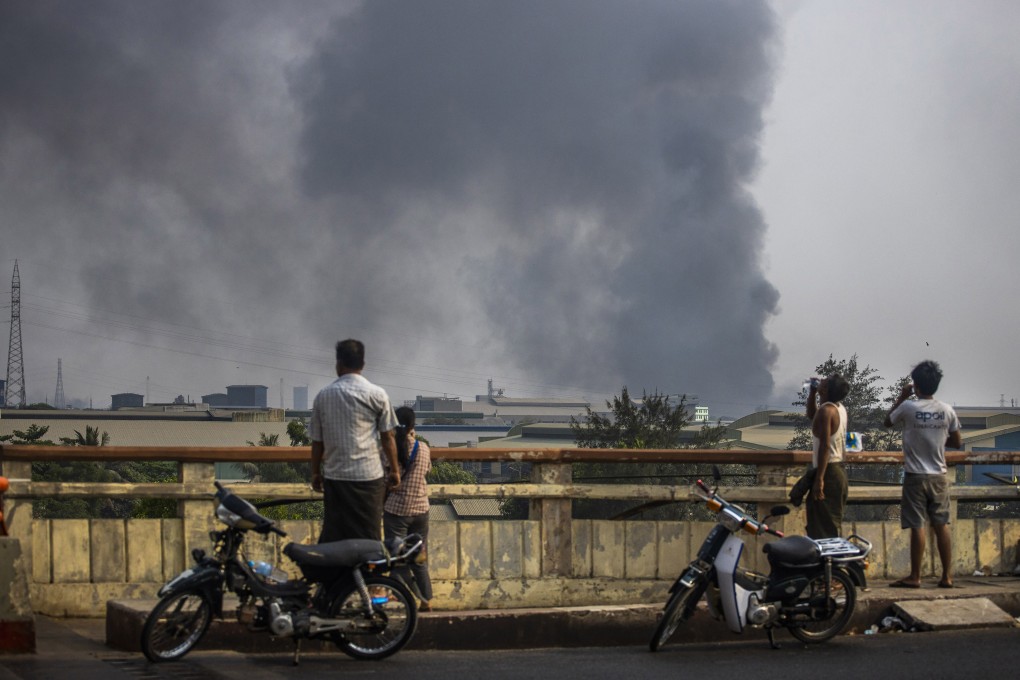Advertisement
As Chinese garment investments unravel, is Beijing’s policy on Myanmar made to measure?
- Torching of Chinese-funded factories in post-coup unrest highlights Beijing’s delicate position as it encourages all parties to seek political settlement
- But with attempts to mediate thwarted and regional impact feared, some Chinese scholars debate whether Beijing should intervene to protect its own interests
Reading Time:4 minutes
Why you can trust SCMP
5

Ten months after the military coup in Myanmar, investors from China, who fund over half of the garment factories in their country’s Southeast Asian neighbour, are contemplating relocation.
Chinese investors have been caught up in the turmoil since the coup ousted the civilian government, led by Aung San Suu Kyi of the National League for Democracy, and sparked widespread protests that were met with lethal force.
In March, at least 40 Chinese-funded garment factories in Yangon were destroyed amid a surge of anti-Chinese sentiment, fuelled by rumours that Beijing supported the military junta. Equipment was smashed and warehouses were set alight, causing millions of dollars in losses.
Advertisement
Compensation had been discussed with local authorities several times, most recently last month, but no progress had been made, said San Khun, chairman of the Chinese Textile and Garment Association in Myanmar.
“Most of these damaged factories closed down or are not yet able to reopen,” San said.
Advertisement
Advertisement
Select Voice
Choose your listening speed
Get through articles 2x faster
1.25x
250 WPM
Slow
Average
Fast
1.25x
